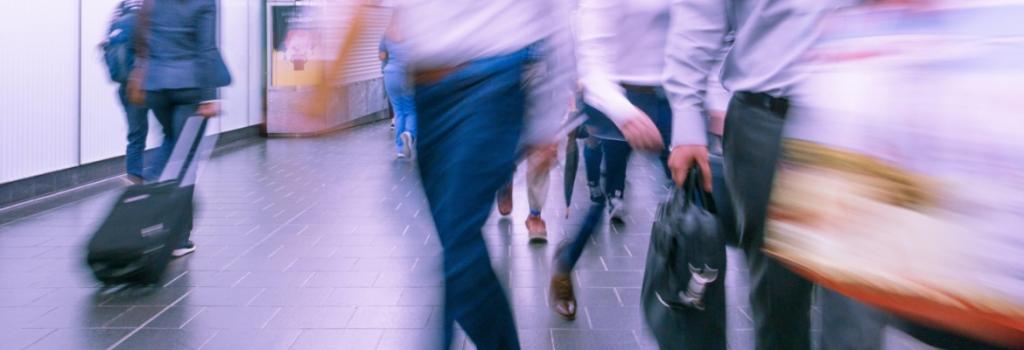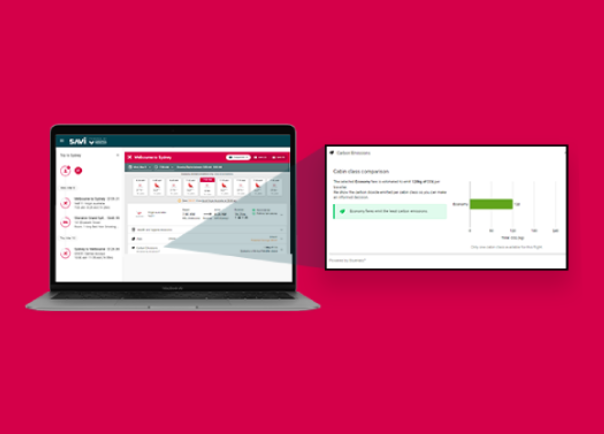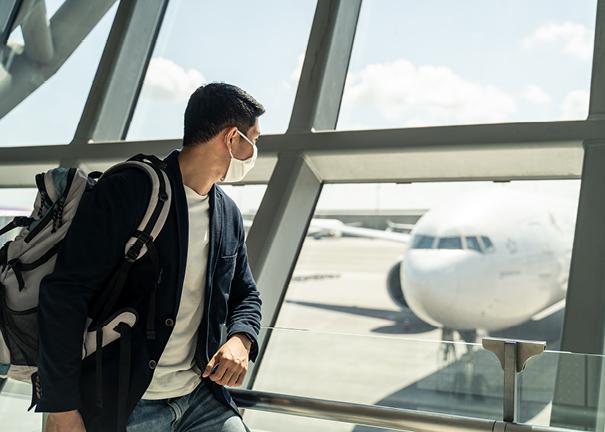
Australia’s international borders have officially reopened to tourists, business travellers and other visitors, providing operations and growth opportunities for SMEs that rely on international travel.
Corporate Traveller has also seen healthy demand for international travel since the Federal Government announced the border reopening on 7 February, with travel enquiries via email and online booking tool activity surge.
Corporate Traveller’s Global Managing Director Tom Walley said, “This is a genuine sign of the pent-up demand of businesses wanting to travel again. We predict a huge lift in corporate confidence for the Australian and global business sector.”
In February, several countries also reopened their borders to Australia, including Norway, Bali, the Philippines, Fiji, and Vietnam.
“The border reopening also signals a return to normalcy for many businesses. I expect this will restore confidence and activate business travel for international sales meetings, site visits, opening new markets, and mergers and acquisitions.”
However, Mr Walley also warns that businesses that continued essential travel at the height of the pandemic will now be facing issues around flight capacity as airlines keep a close eye on passenger loads and scheduling.. Using a travel management company such as Corporate Traveller to navigate the ebbs and flows of the ‘new normal’ will be a critical part of the reopening.
Below, Tom shares 8 ways businesses can return to international travel seamlessly.
- Book as early as possible. Corporate Traveller is seeing premium economy and business class seating sell out fast on returning flights, as returning travellers opt for more space and a superior flight experience.. Booking premium seating through Corporate Traveller will provide price competitiveness as well as more flexibility around dates and times. Businesses looking for the most competitive fares should book more than 14 days prior to the departure date, which will allow them to change travel arrangements more successfully when needed.
- Check flights before booking international meetings – and be flexible. While airlines are rebuilding their capacity, not all will fly internationally every day. This is where flexibility with travel dates and stopovers will help. Even after booking, travel may not run smoothly in the current climate and businesses need to prepare to push back a departure date or extend a trip at the last minute. Flexible airfare options will also be important to avoid significant costs when adjusting travel arrangements.
- Review your travel policy. Businesses could consider updating their travel policy to ensure their travellers are better protected. Insurance should include COVID coverage, while businesses may also want to expand employee travel choices – for instance, premium flight seating – to reduce infection risks and thereby fulfil their duty of care requirements.
- Use the same airline for the entire travel journey. Booking travel with the same airline will allow travellers to be supported by that carrier throughout their journey, including amending flights, stopovers, and connections in the event of disruptions. By using two different airlines for connecting flights, travellers can risk missing a flight or having to re-check their luggage, a time-consuming and overwhelming process.
- Be aware of restrictions in the destination country. Businesses should have access to real-time updates on overseas quarantine requirements and restrictions – Corporate Traveller’s CT Mobile app is the perfect example of this. The app is designed to be the ‘guardian angel’ for every traveller in times of disruption. The CT Mobile app sends flight status reports, boarding gate changes, weather, and traffic reports, as well as the latest alerts and information on border closures and restrictions that are impacting the area. Corporate Traveller also provides travellers with a checklist to ensure they are prepared and informed ahead of, during, and after travel. New restrictions may require business travellers to amend their trips. Some destinations, such as Singapore, also require proof of insurance for COVID-related medical expenses.
- Be aware of testing rules. It is important to keep abreast of rules around testing and vaccinations. Testing rules also differ for unvaccinated and vaccinated travellers. Travel management providers can keep businesses informed with handy resources such as the Time To Fly Resource Centre, but travellers should also keep an eye on SmartTraveller or the Government websites of their travel destination.
- Arrive at the airport early. Frequent business travellers often arrive at airports around 90 minutes before departure. However, the current travel process is more complex and time consuming and travellers should now arrive at least three hours before departure. If you haven’t already done your PCR tests through one of the Healius pathologies (our PCR testing partner) you can organise a last minute test at the airport. International airports in Melbourne, Brisbane and Sydney also offer PCR testing, which can be pre-booked online through Histopath prior to arriving at the airport. But, this means you’ll need to get to the airport four to five hours before departure to allow adequate time to get tested.
- Use a travel management company to book travel. Using a travel management provider such as Corporate Traveller for all travel arrangements uncomplicates the business of travel in a complex environment. Travel consultants can access the full picture of a company’s travel journey and provide additional support and information to maximise a business’s duty of care to their travellers and cost savings. Travel management providers can also adjust, cancel and re-book travel arrangements on a company’s behalf.


